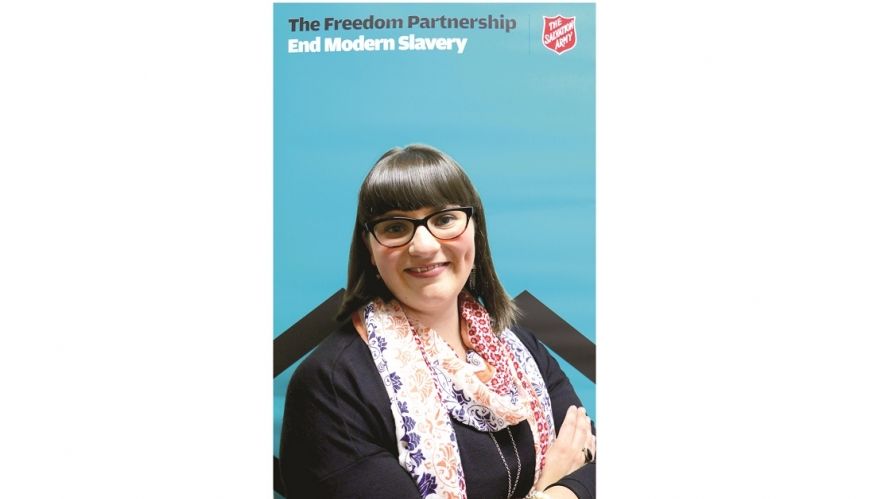Freedom Partnership expert releases findings into early and forced marriage

Freedom Partnership expert releases findings into early and forced marriage
19 December 2017
Laura Vidal has just released her research findings into early and forced marriage in Australia - the outcome of her Winston Churchill Memorial Trust fellowship.
Laura Vidal, National Project Coordinator for The Salvation Army’s Freedom Partnership to End Modern Slavery, has released her research findings into innovative and best practice responses to early and forced marriage in Australia.
This research was the outcome of Laura’s prestigious Winston Churchill Memorial Trust fellowship, awarded at the end of 2016.
Laura visited Sri Lanka, United Kingdom, Denmark, Canada, the United States and Kenya in order to research the practices of other nations and so enhance Australia’s response to developing innovative policies, practices and strategies to help end early and forced marriage in Australia.
Through her research overseas, Laura also built international networks to benefit and uphold the rights of individuals at risk, learn from others with advanced practice in the field and develop nuanced and holistic responses.
The key learnings of Laura’s research include:
1. Expand the definition of child, early and forced marriage to include intersections with gender-based violence, family violence and child protection. This will improve community engagement and ensure comprehensive service delivery frameworks are developed.
2. Create a support framework that is coordinated and includes social and civil protection mechanisms, in addition to the existing provisions in the Commonwealth Criminal Code.
3. Invest in long-term social change, including working with communities to build ownership and leadership.
You can read Laura’s full report here.
“The research findings challenge Australia to reconsider their approach in addressing early and forced marriage,” Laura explained. “Rather than considering how the issue can fit into existing frameworks, we really should be asking if these frameworks are the most appropriate.”
Early impressions from the data Laura gathered through this fellowship lean towards a conclusion that suggests Australia does not have the most effective framework to ensure prevention and protection of individuals at risk of early and forced marriage.
“[My] recommendations are the start of a roadmap that Australia should adopt because they have been proven to be effective in comparable jurisdictions,” Laura said.
“The experience of practitioners in these countries has shown their strategies to be effective in increasing participation in appropriate legal pathways, behavioural change in practicing communities, and prevention of forced marriage.”
Laura said that her findings were also another reminder of the challenges that exist in Australia, specifically the gaps in providing support to vulnerable young people when it is linked to law enforcement.
“Experts internationally confirmed the views of practitioners in Australia that participation in the judicial process is not always in the best interests of the victim – connecting support to this process is limiting the opportunity for individuals to seek safety and ultimately, increasing risk,” she said.
Laura also said that, internationally, child, early and forced marriage is understood in a more nuanced and holistic way.
“The practice is defined recognising how it crosses over into areas of child protection, gender-based violence and family violence. Australia is one of the only countries that defines the practice explicitly as slavery. Whilst there is some merit and legal basis for this, the research also shows that viewing the practice explicitly as slavery limits our ability to engage with communities and ensure that a comprehensive, holistic response is available to individuals at risk.”
Laura described the opportunity for a Churchill Fellowship as an incredible experience to grow both professionally and personally. “It is a unique, once-in-a-lifetime opportunity, to delve deep into your area of work and make meaningful contributions for change,” she said. “I would encourage people to find out more information and consider applying here."
Jenny Stanger, National Manager, Freedom Partnership to End Modern Slavery, said that, “Laura's work should galvanise practitioners and policymakers to act urgently so people affected by early and forced marriage have the support and protection needed to address their situation. The solutions are at hand – strong leadership and collaboration is needed now to carry them forward.”
The Freedom Partnership, launched in 2014, is The Salvation Army’s national initiative to end modern-day slavery practices in Australia.
To read an extended interview with Laura from news.com.au, click here.
Comments
No comments yet - be the first.